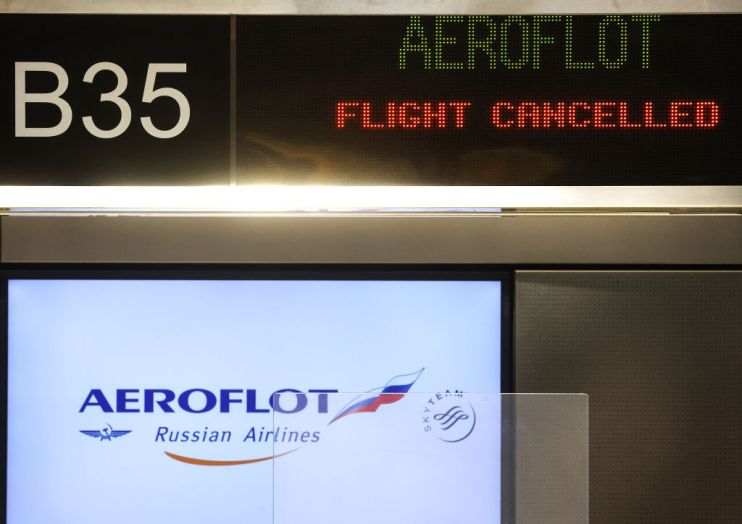UK introduces new Russian airline sanctions

The UK has announced new restrictions on Russian airlines as the war in Ukraine continues.
Under the sanctions, three airlines, Aeroflot, Ural Airlines and Rossiya Airlines, will be unable to sell their unused landing plots at all UK airports, which are worth an estimated £50m.
The overarching objective of these sanctions is to bring a large and lasting cost on Putin and those close to him for the illegal invasion of Ukraine.
“We’ve already closed our airspace to Russian airlines. Today we’re making sure they can’t cash in their lucrative landing slots at our airports,” foreign secretary Liz Truss said. “Every economic sanction reinforces our clear message to Putin – we will not stop until Ukraine prevails.”
Truss’s words were echoed by transport secretary Grant Shapps, who has taken up the presidency of the International Transport Forum.
“As we take over the ITF Presidency, we’ll continue to punish Putin,” he tweeted.
Commenting on the government’s decision, travel expert Rob Staines said the sanctions will put further pressure “on an already beleaguered Russian aviation market.”
“UK landing slots are a precious commodity for airlines and if sold, could have provided a much needed cash injection for Russian carriers,” he told City A.M.
“These sanctions will have a significant impact, however there are certain markets which remain open for business with Russia, such as Turkey which is making efforts to boost connectivity.”
But according to aviation management professor David Warnock-Smith, even though the measures seem like an important step, Russian airlines will inevitably forced to give up their slots once the ‘use it or lose it’ rules are reinstated this summer.
“Through sanctions already in place preventing Russian carriers from entering into UK airspace, it won’t be long before Russian carriers lose the right to use their UK airport slots,” he told City A.M.
“Nevertheless, the announcement by the UK Government is designed to prevent the possibility of a quick sale of slots by Russian carriers to other carriers before the 70-30 use-it-or-lose it rules comes back into effect.”
The UK was one of the first countries to introduce sanctions against Moscow’s transport industry, closing its airspace and ports to Russian planes and vessels. Since then, it has been followed by a growing number of countries including the US, EU and Canada.
The government also hit those closest to the Kremlin, sanctioning more than 1,000 people and over 100 businesses.
This includes sanctions on the defence sector, as well as curbs on major banks including Sberbank and Credit Bank of Moscow.